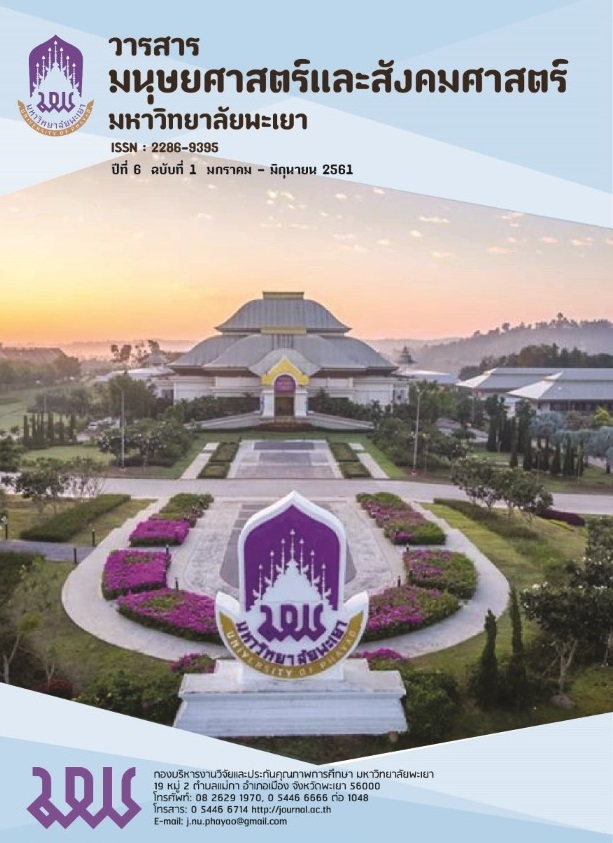The effects of Dharma information seeking Behavior through social media on stress reduction and increasing happiness of working age population in Bangkok”
Keywords:
Dharma information seeking behavior, Social media, Types of Dharma content, Use of Dharma information, Reduction of stress, Increase of happinessAbstract
This research aims to study Dharma information-seeking behavior, social media, types of Dharma content, and use of Dharma information, which affect the reduction of stress and increase of happiness. The researcher adopted the methodology of survey research and collected the information through a questionnaire. The research sample group included 400 samples of the working age population in Bangkok. It was found that the majority of the sample group was female, 36-45 years old on average. They completed their education at a Bachelor’s Degree level, they work as employees at practitioner level in private companies and earn an average salary of 10,000-20,000 baht per month. Most of them were single. They used social media daily to seek information about Dharma. They spend approximately more than 1 hour seeking information on Dharma from home between 18.01-22.00 hrs. The sample group looked for information on Dharma through social media at a moderate level. Regarding their behavior, they use the Dharma information for their benefit the most, followed by accepting the reality of life and adopting Dharma information to improve their daily life, respectively. The use of social media to seek information on Dharma is the least used. The social media channel that is used the most is the Line application. The sample group searches for Dharma content types at a moderate level and searching for Dharma information regarding the ideas of Dharma was the highest, followed by information about reciprocal deeds and real happiness from the religion. With regard to use of Dharma information, the sample group uses the Dharma information and adopts the Dharma information as a guide to living the most, followed by using Dharma as a spiritual anchor to attain true happiness in life. With Dharma information, the sample group could reduce stress at a moderate level. According to the mean, Dharma information can help reduce anxiety the most, followed by reducing anger and minimizing self-adherence. With Dharma information, the sample group could increase happiness at a moderate level. According to the mean, Dharma information can improve the mental health, refresh the brain function and enhance happiness the most, followed by enhancing self-esteem, getting a good night’s sleep and overall improvement of life, respectively.
References
ประทุม ฤกษ์กลาง. (2547). หลักการสื่อสารตามแนวพุทธศาสนา. BU Academic Review, 3(2), 139-146.
ประทุม ฤกษ์กลาง. (2554). การจัดการความเครียด เติมความสุข เพื่อประสิทธิผลในการทำงาน. วารสารนักบริหาร, 31(2), 95-101.
ประวัติวัดป่าบ้านตาด. (2557) สืบค้นจาก: http://www.luangta.com/resume/wat_history.php
พระมหาบุญไทย ปุญญมโน. (2555). พัฒนาการการเผยแผ่พระพุทธศาสนาจากมุขปาฐะถึงโลกไซเบอร์. แหล่งที่มา http://www.cybervanaram.net/. 14 กุมภาพันธ์ 2557.
พัชนี เชยจรรยา, เมตตา วิวัฒนานุกูล และถิรนันท์ อนวัชศิริวงศ์. (2541). แนวคิดหลักนิเทศศาสตร์. กรุงเทพมหานคร: จุฬาลงกรณ์มหาวิทยาลัย.
ศาวดี วิสารทวิศิษฏ์. (2556). ความสัมพันธ์ระหว่างการเปิดรับสื่อธรรมะกับความรู้เกี่ยวกับหลักคำสอน ความเชื่อในพระพุทธศาสนาและการกระทำความดีตามแนวพระพุทธศาสนาของประชาชนในเขตกรุงเทพมหานคร. (วิทยานิพนธ์ปริญญามหาบัณฑิต). มหาวิทยาลัยกรุงเทพ.
สำนักงานสถิติแห่งชาติ. (2553). สำมะโนประชากรและเคหะ พ.ศ. 2553. ค้นวันที่ 14 กุมภาพันธ์ 2557 จาก http://popcensus.nso.go.th
อุษณีย์ ศรีสวัสดิ์. (2559). ความพึงพอใจและการใช้ประโยชน์ระบบปฏิบัติการไลน์เพื่อการศึกษาและเผยแผ่พระพุทธศาสนาของพระสงฆ์ที่กาลังศึกษาในมหาวิทยาลัยมหาจุฬาลงกรณ์ราชวิทยาลัยและมหาวิทยาลัยมหามกุฏราชวิทยาลัย. (วิทยานิพนธ์ปริญญามหาบัณฑิต). มหาวิทยาลัยรามคำแหง.
Atkin, C. K. (1973). Instrumental utilities and information seeking in new model of mass communication research. Beverly Hill, CA: Sage.
Marketeer. (2017). Thailand Zocial Awards 2017. Retrieved 12 August 2017 from http://marketeer.co.th/archives/119015
Yamane, T. (1973). Statistics: an introductory analysis. New York: Harper&Row.
Downloads
Published
How to Cite
Issue
Section
License
ผู้นิพนธ์ต้องรับผิดชอบข้อความในบทนิพนธ์ของตน มหาวิทยาลัยพะเยาไม่จำเป็นต้องเห็นด้วยกับบทความที่ตีพิมพ์เสมอไป ผู้สนใจสามารถคัดลอก และนำไปใช้ได้ แต่จะต้องขออนุมัติเจ้าของ และได้รับการอนุมัติเป็นลายลักษณ์อักษรก่อน พร้อมกับมีการอ้างอิงและกล่าวคำขอบคุณให้ถูกต้องด้วย
The authors are themselves responsible for their contents. Signed articles may not always reflect the opinion of University of Phayao. The articles can be reproduced and reprinted, provided that permission is given by the authors and acknowledgement must be given.








